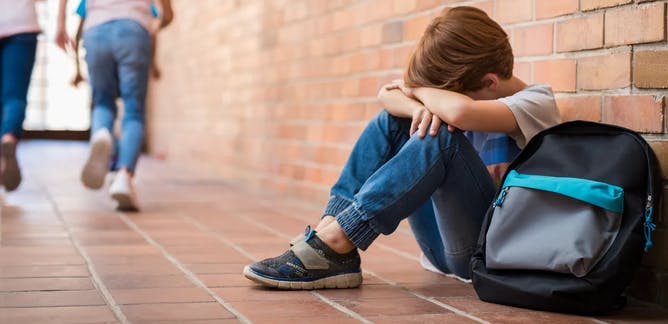Local authority children’s services have been reduced to crisis-driven firefighting as a result of years of under investment. This has left them ill-prepared to cope with the torrent of extra challenges presented by the coronavirus lockdown, a report by the UK’s largest children’s charities warns today.
New analysis by The Children’s Society, Barnardo’s, Action for Children, NSPCC and the National Children’s Bureau reveals the true impact of a toxic cocktail of cuts and a soaring demand for help.
Over the last decade local authority budgets have been so squeezed that councils can only afford to get involved when children have reached crisis point and need costly interventions, like being taken into care.
Now the charities are deeply concerned about how these already overstretched services will cope after the coronavirus crisis, with a crippling spike in demand expected, as the true extent of the devastation caused by the pandemic becomes apparent.
It is feared even more children and families, ‘hidden’ from the view of professionals during the lockdown, could slip through the cracks, doomed to reach crisis point before any help is provided.
Councils are in a Catch 22 situation because while they know the best long term option is to invest in early intervention services, like children’s centres and youth workers, they cannot afford to do this.
Instead they are spending a greater proportion of available funding on children in crisis today.
Available funding for children’s services has fallen by £2.2 billion between 2010/11 and 2018/19 so they simply cannot afford to pay for early intervention services, leading to spending on early help dropping by almost half (46%) during this period.
At the start of the decade, late intervention, including child protection teams and youth justice services, accounted for 58% of local authority spending on children and young people’s services.
The biggest increase in spending was for services for children in care, soaring by 40% from 2010/11 to 2018/19.
The report finds councils have had to make difficult spending decisions to bridge the gap between the funding they have available and what they need in order to keep services going.They are doing this by reallocating funds from other budgets and this has led to them being able to partially plug the funding gap, with spending on children’s services only falling by £536 million (a six per cent reduction) between 2010/11 and 2018/19.
But the leading children’s charities warn this is not sustainable in the long run – and some local authorities were already spending reserves in order to support children’s services provision.
The charities say the Government must help local authorities by injecting funds to repair the children’s social care system.
This will allow them to be able to afford preventative early intervention services like family support and children’s centres. And, by doing so, fewer families will reach crisis point and so they will have to spend less on costly late intervention work.
Barnardo’s Chief Executive Javed Khan said: “We have long warned about the ‘perfect storm’ facing children’s social care, and the gap between demand and resource will widen further as a result of coronavirus.
“Even before the lockdown children were facing growing challenges, from knife crime and gangs, to cyberbullying and online grooming. Now there is a new wave of ‘hidden’ children, falling into poverty, experiencing domestic abuse and tipping the existing crisis in mental health into catastrophe.
“We know there will be a massive increase in demand for support, with the effects of the pandemic felt for years to come. But the overstretched system cannot cope, and the Government must step in to fund vital early intervention services, so families get the help they need before reaching crisis point.
“But it is not simply about money – we need to spend resources wisely. This is why Barnardo’s is taking a radical new approach – working with national and local partners and investing our own resource to co-design and deliver services that change children’s lives, and the system around them, for the better.”
Deputy chief executive at Action for Children, Carol Iddon, said: “The coronavirus crisis has exploded into the lives of vulnerable families after a decade of decline in available funding for services that protect children from harm.
“It would be dangerously irresponsible to have an NHS with only A&E departments but no GPs, no cancer screening services and no public health education – yet this kind of short-sightedness is what we’re facing in children’s services. A system geared only for crisis, guarantees more children will end up in crisis. And we’re here because for ten long years councils have been backed into an ever-tighter corner, with no choice but to abandon early help services that stop family problems like domestic abuse or neglect from spiralling.
“We risk being unprepared for the fallout for families from the coronavirus crisis. The right thing to do for children – and the smart thing to do for public finances – is for the government to invest in early help services now, to stem the torrent of children being taken into care and reverse the ballooning financial and social cost of years of under investment.”







